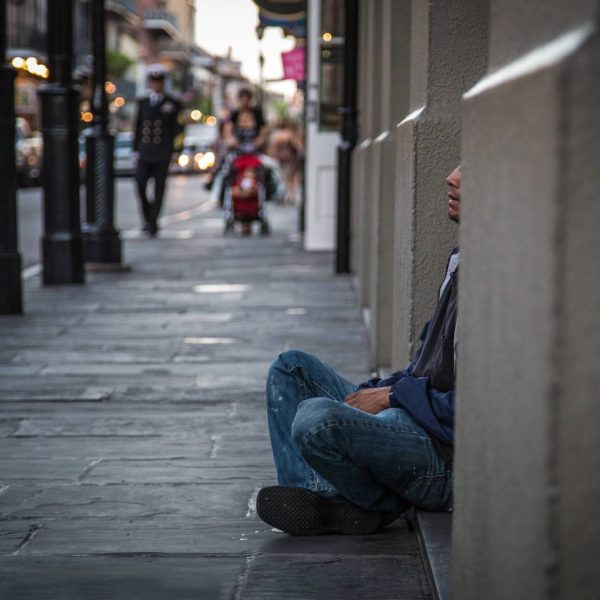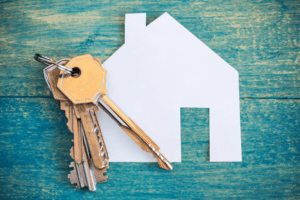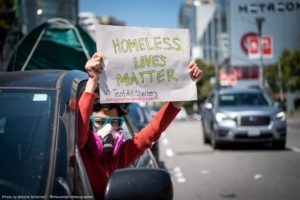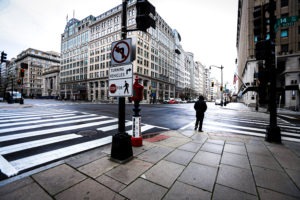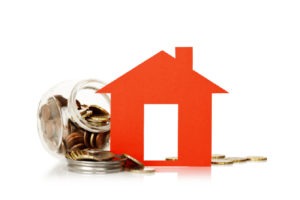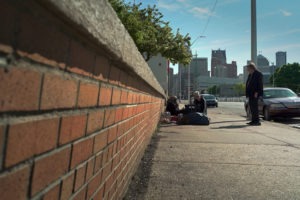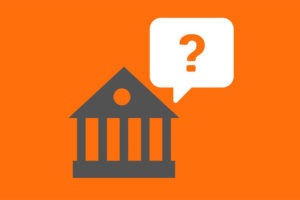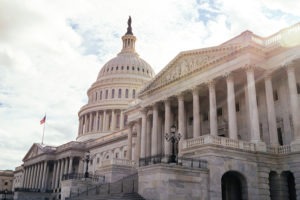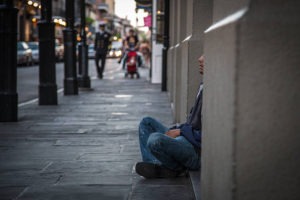Update April 1: The Latest: What the CARES Act Means for the COVID-19 Homelessness Response
On March 27, Congress passed and the White House signed the Coronavirus Aid, Relief, and Economic Security (CARES) Act, a $2 trillion funding package that addresses an array of sectors that have been impacted by the coronavirus pandemic. The Senate passed this bill earlier in the week. The funding includes $12.4 billion for the Department of Housing and Urban Development as well as an injection of funding for individuals, businesses, states, and local governments.
See this overview of what is in the bill related to homelessness, written by the National Alliance to End Homelessness.
Below is a breakdown of funding allocations for programs directly impacting those experiencing homelessness and homeless service providers. You can find more details here.
The fight is not over.
Community Solutions joined groups in pushing federal lawmakers to ensure that people experiencing homelessness and those that serve them are not being left behind. This could not be possible without the advocacy of community and national organizations — including the National Alliance to End Homelessness, National Low Income Housing Coalition, National Health Care for the Homeless Council, National Law Center on Homelessness & Poverty, and many others — and concerned constituents across this country. While we are pleased that our federal lawmakers provided this needed fiscal relief, we need to ensure that people experiencing homelessness, and those who serve them, continue to be supported as state and local governments work to administer funds and in any forthcoming stimulus package.
Following the injection of this stimulus funding, state and local governments must focus on allocating this new funding to protect people experiencing homelessness and homeless response staff, and limit inflow into health care and hospital systems. This includes ensuring people experience homelessness — and the people helping them — have immediate access to housing, health and safety training, personal protective equipment, facilities for hand-washing, medical treatment, testing options, and ultimately safe places to quarantine.
Embed from Getty Imageswindow.gie=window.gie||function(c){(gie.q=gie.q||[]).push(c)};gie(function(){gie.widgets.load({id:’VpKCOtkfTVFZUR07GIGhZw’,sig:’ALd949sSrO_-lBIHMsq9KTRly7ogNbj27klRELss0XA=’,w:’594px’,h:’416px’,items:’1207534742′,caption: true ,tld:’com’,is360: false })});
What you can do now.
Contact your state’s governor to ask them to act quickly to make sure that the people experiencing homelessness in your community — and the organizations that serve them — receive the resources and help to stay safe and healthy. Remind your governor that your homeless response staff are on the front-lines of this pandemic and need immediate access to protective gear and training as they work to protect those most vulnerable from contracting and spreading the coronavirus.
The Breakdown.
Flexible funding
- $30B in Disaster Relief Funds, which can be used by state and tribal governments to fund emergency-service providers, including private nonprofits providing critical and essential services (like food and shelter).
- $150B for the Coronavirus Relief Funds, which can be used as flexible funds for state, tribal, and local governments (allocated by state population).
Housing and homeless-focused funding
Department of Housing and Urban Development (HUD) – $12.4B
- $4B in Emergency Solutions Grants to assist homeless shelters and outreach workers who keep people who are homeless safer from coronavirus
- $5B in Community Development Block Grant (which can be used for rental assistance)
- $1.25B in Tenant-Based Rental Assistance
- $685M Public Housing Operating Fund
- $1B in Project Based Rental Assistance
- $300M in Native Americans Programs
- $65M for Housing Opportunities for Persons With AIDS (HOPWA)
- $2.5M for additional Fair Housing enforcement
- $50M for Section 202 Housing for the Elderly
- $15M for Seniors particularly at risk from the coronavirus
Other housing programs and provisions:
- $900M for Low Income Home Energy Assistance Program
- $25M for Runaway and Homeless Youth Programs
- $100M for SAMHSA Emergency Response Grants, to provide flexible funding to address mental health, substance use disorders, and provide resources and support to youth and the homeless
- Also provides a moratorium on foreclosures for all federally-backed mortgages, foreclosure forbearance, and eviction protections.
Economic assistance
- Cash payments to Americans – $1200/adult and $500/child
- Payments are reduced for individuals making over $75,000 annually and none for over $90,000
- Checks aren’t expected to be sent until May (at the earliest)
- Tax payments delayed for individuals and businesses until July (subject to limitations)
- Including payroll tax deferral
- Loans to small businesses with forgiveness of the portions used for payroll, rent, and/or mortgage for businesses that keep employees on payroll
- $500B of loans and loan guarantees for businesses impacted by COVID-19
- New Inspector General at Treasury and special Congressional Oversight Committee to monitor these loans
- Businesses owned by Trump, Pence, other members of the Administration, and Members of Congress are not eligible for loans
- Extension and expansion of unemployment insurance to laid-off workers (including non-traditional and gig workers)
- Payments on federal student loans suspended for up to six months (without incurring additional interest)
